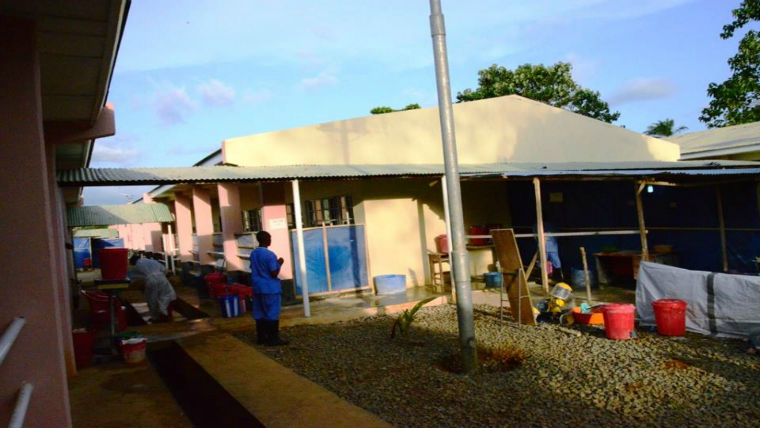Ebola's frontline: Day in the life of medical worker in Sierra Leone
In Sierra Leone, the situation is critical. Ebola has spread throughout the country. The virus has been identified in at least 2,300 people who have been tested, but the actual number is likely to be much higher. Many health centers and hospitals have closed and those that are still open are full to capacity, with sick people being turned away.
The health system before the outbreak was weak. There were few medical doctors or nurses. Health facilities lacked basic medical supplies for infection control and prevention, and medical and nursing staff lack basic skills to respond to an outbreak of this nature. To add to the problems, the magnitude of a very unusual outbreak was unprecedented. The country was completely unprepared.
World Vision has been providing medical gear to frontline medical staff, over 4,000 protective suits, four million gloves and thousands of litres of chlorine. The Hastings Treatment Centre in Freetown, Sierra Leone, was the first to receive our Personal Protective Kits (PPK) to help nurses and other medical practitioners to stay safe.
World Vision has also been educating children at home with TV and radio classes, and teaching communities to stay healthy.
We went to the Hastings Treatment Centre and followed Madam Madina Rhaman, a 32-year old senior state registered nurse part of the team to help tackle Ebola.
Here is a glimpse of what medical practitioners have to go through on a day-to-day basis in order to help tackle the outbreak:  Bright and early, the staff at the Hastings Treatment Centre in the area of Freetown, Sierra Leone is ready for another day to tackle the virus.
Bright and early, the staff at the Hastings Treatment Centre in the area of Freetown, Sierra Leone is ready for another day to tackle the virus.  Getting ready to put on her protective suit
Getting ready to put on her protective suit Putting on the protective suit is a delicate procedure as Madam Madina Rhaman cautiously follows the proper steps.
Putting on the protective suit is a delicate procedure as Madam Madina Rhaman cautiously follows the proper steps. Checking her mask, this is an essential step of the protective gear procedure that must be adhered to before treating patients.
Checking her mask, this is an essential step of the protective gear procedure that must be adhered to before treating patients.  Doubling gloving is required for extra protection in some circumstances - World Vision is currently delivering 4 million pairs to gloves to help support health workers.
Doubling gloving is required for extra protection in some circumstances - World Vision is currently delivering 4 million pairs to gloves to help support health workers. With gloves, face shields, aprons, caps and covers, she is ready to go.
With gloves, face shields, aprons, caps and covers, she is ready to go. Gallons of chlorine disinfectants supplied by World Vision play a vital role in preventing the spread of Ebola.
Gallons of chlorine disinfectants supplied by World Vision play a vital role in preventing the spread of Ebola.  Full length picture of health workers in protective clothing ready to treat patients.
Full length picture of health workers in protective clothing ready to treat patients.  At the end of a long day at the Hastings Treatment Centre, our medical staff is finally getting sprayed once again with disinfectants.
At the end of a long day at the Hastings Treatment Centre, our medical staff is finally getting sprayed once again with disinfectants.
World Vision is working in both Sierra Leone and Senegal to help tackle Ebola. For more information and interview requests, please call +447889 631613